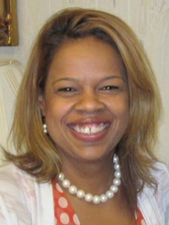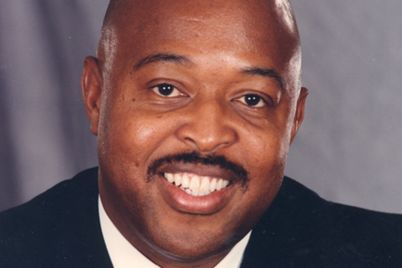“Kathleen Young-Parker is destined to fail in her effort to lead the district’s initiative to close the achievement gap if the game doesn’t change,” said Dr. Goliath Davis.
BY GOLIATH J. DAVIS, III, Ph.D. | Contributor
PINELLAS COUNTY – Pinellas County Schools Superintendent Kevin Hendrick recently appointed a community talent, Kathleen Young-Parker, as Minority Achievement Officer, replacing Dr. Lewis Brinson, who was appointed by former Superintendent Mike Grego and decided to retire. Others and I support the appointment, but the salient question is whether she will succeed.
The question is vital given the games Pinellas County and other districts continue to play primarily for political reasons. Former Gov. Jeb Bush installed the system of issuing school grades as an accountability measure, and governors succeeding him have added their own versions of testing and grading for the same stated purpose. School superintendents, principals, teachers and others involved in the education enterprise have primarily responded to the politics of education at the expense of learning.
Young-Parker has a commendable record of school turnaround and has been frequently commended by Superintendent Hendrick. So, will the district continue to play the same games or encourage her to deviate from the prevailing model and support her efforts?
Will the district continue to focus on the lowest-performing 25 percent of Black scholars at the expense of the remaining 75 percent to show learning gains and move the school grade, or will there be an emphasis on scholar proficiency? Will scholars in need of Exceptional Student Education (ESE) services continue to be allowed to disrupt classrooms and the learning opportunities for the majority due to a misunderstanding of the Bridging the Gap Plan, and will Black students be continually placed in advanced courses absent sufficient support to satisfy a Bridging the Gap Plan’s goal?
The move towards scholar proficiency at the foundational levels is imperative. Scholars who leave third grade with insufficient reading and basic math skills experience severe difficulties in middle and high school. They often receive Concordance Diplomas replete with all the difficulties they face in gaining college entrance and competing in an ever-competitive work environment.
Concordance Diplomas are a direct result of school failures statewide. They were conceived to ameliorate the state’s embarrassment, resulting from its failed testing policies and the awarding of far too many Certificates of Attendance.
Young-Parker is destined to fail in her effort to lead the district’s initiative to close the achievement gap if the game doesn’t change, and she is the district’s sole embodiment of the court-ordered Bridging the Gap Plan. I can say with certainty that few in the district are familiar with the Plan inside and outside the Transformation Zone.
Many in the district believe scholar failure is restricted to the T Zone and ignore the fact that schools with “A” and “B” grades have Black scholars, who, as a group, are not proficient in the three Rs. As a group, Black scholars are failing districtwide in a district recently designated an “A.”
Accountability is an essential missing variable in Pinellas County Schools. Few feel any urgency to address the achievement gap for one important reason: the school board and the superintendent have not made it a priority. In meetings with area superintendents and principals, Hendrick devotes considerable time to playing games and the student experience instead of the Bridging the Gap Plan.
I venture to say that if asked, school leaders as a group cannot articulate the significant plan components or goals or what the gap really is. Young-Parker alone cannot significantly impact this reality without a full-throated endorsement from Hendrick. My experience has been that everyone falls in line when the BOSS clearly articulates the organization’s priorities.
I am encouraged by two individuals I have met and what they can offer Young-Parker in her new role. They are Anna Brown, executive director of Assessment, Accountability and Research, and Stephanie Long, chief student support officer. These two individuals and their staff impressed me as well-equipped to provide Young-Parker with data and assistance to effectively monitor Gap Plan progress and ESE student support. Autumn Frei, executive manager of evaluation in Brown’s administration, keenly understands the problems and can present the data accordingly.
Will the district continue to play the same game, or will it change course? Should there be any honor in “A” district status when Black scholars as a group are failing? The court did not think so. The appointment of Young-Parker can either improve on the success Brinson made, maintain the status quo, or represent the beginning of a new era.
Young-Parker is only a piece of the potential solution. Superintendent Hendrick holds the key in that all those involved in the enterprise must understand and believe in the mission. Brown, Long and Young-Parker must be supported. When I served as deputy mayor for Mayor Rick Baker, I was successful for various reasons. However, Mayor Baker’s clarity, commitment, and support were the most important reasons. He never missed an opportunity to stress the importance of the initiative. He would always stand before the city’s leaders and administrators and proclaim: “When Go Davis speaks, it’s just like me speaking. Give him what he needs.”
Superintendent Hendrick, Young-Parker is your appointee. Is her voice your voice? Will your leadership team meetings consist of more than games? Will you give a full-throated endorsement to the Bridging the Gap Plan and ensure everyone in the T Zone and the entire district understands it’s their responsibility to teach and support Black scholars in A, B, C and failing schools and that scholar proficiency is the ultimate goal?
With proficiency comes the awarding of standard high school diplomas and scholar success. And with total scholar success, Black and white, comes a legitimate “A” district designation.
Dr. Goliath Davis is a former St. Petersburg police chief and deputy mayor who advocates for education in Pinellas County, focusing on Black student achievement.











Why were these learning issues prevalent in Black Scholars before Integration?? We had a different system and 90%+ of my graduation class of 300 were successful in life. We had a different system and we were tested. The tests were used to group us into classes with students that had similar learning styles. Our teachers figured out how to teach us based on our learning styles. In addition, we had community support and our teachers followed us from elementary school up until graduation. Many of our teachers knew our parents. Some had taught our parents. We must work on what our Black Scholars lost so that we can help them succeed. Some are dealing with Trauma, Homelessness, Vision issues and Hearing issues. and other barriers to learning. These barriers must be singled out and worked on early in the child’s life so that they can succeed. Some parents need assistance in helping their scholars to learn. Who will assist those parents? Our teachers did in my time. I looked at the list of items Dr. Davis’ listed. Who will read and heed those suggestions? If parents would support their child’s learning the way they support Little League sports, that would be a tremendous help. Phyllis Wheatley Rise to Read Campaign worked with Scholars and Parents at Campbell Park Elementary for the 23/24/school. year. They are now a ‘B’ school. Our impact may have been small but we made a difference.